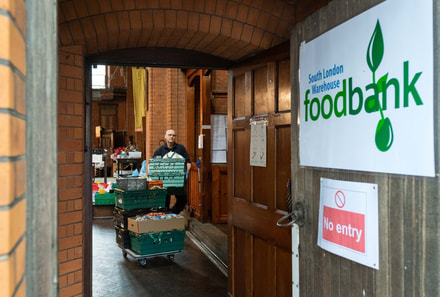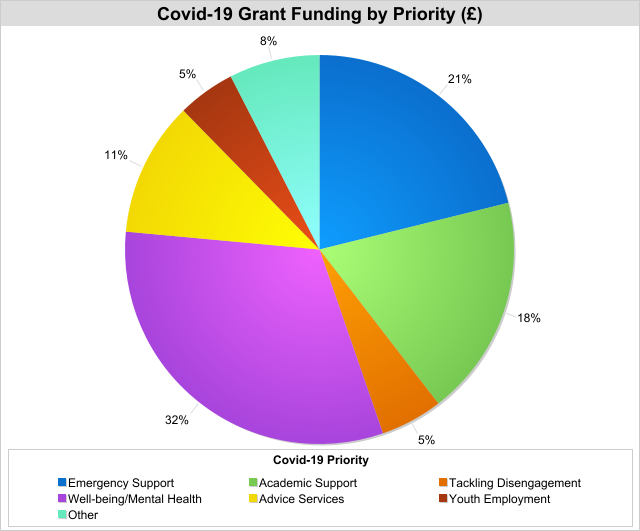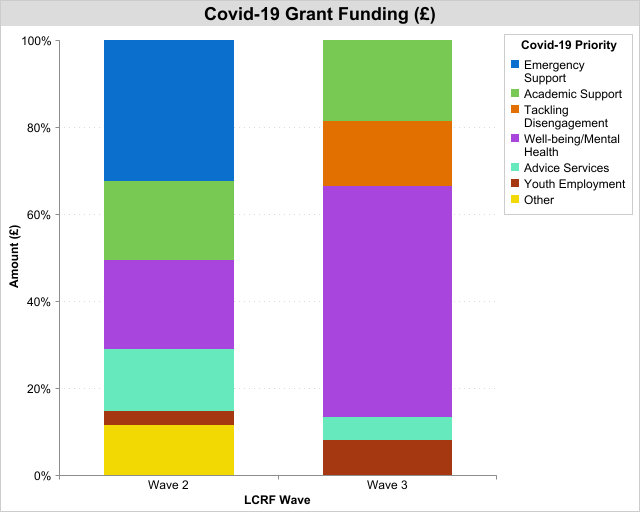|
We saw the likely impact of the Covid-19 pandemic in early March 2020 and took urgent steps to re-target our grants programmes in response. We also used our contacts to indicate our readiness to use our networks to handle funding from other sources. These eventually amounted to an additional £330,000. The result was that our own funds and those from other sources which we distributed were able to support over 60 Lambeth community groups and schools with over £870,000 funding as they quickly adapted to the new normal of lockdown, social distancing and remote working. More details can be found below by clicking on the Read More button .  SMP Coach helping at Lambeth Food Distribution hub SMP Coach helping at Lambeth Food Distribution hub Initial Response Our first step was to communicate with our existing grantees to offer flexibility and understanding. If projects were unable to continue with the funded projects, grantees were able to temporarily suspend the projects or use the funds for new initiatives supporting people during lockdown. At the start of lockdown, we had 63 active existing grants and half of the groups paused their projects and half shifted to remote working or changed the focus of their project. An example is St Matthew’s Project, a football-based community charity. During lockdown they were unable to continue providing football training or coaching opportunities but using our grant funding, their staff and volunteers joined the community food distribution hub in Brixton and were able to make many deliveries to low income and isolated Lambeth residents. March 2020 - A message to projects and organisations we fund The current public health crisis is having an impact on a number of the organisations and projects we fund in Lambeth. Here is a message for them.
 Grant Funding Overview In March we made two grants: one to Waterloo Foodbank to support their move to home delivery and another to Lambeth Larder to provide a community Covid-19 website which highlighted the local resources and support. In April, we set up the Lambeth Community Response Fund and co-ordinated funding from other local Lambeth funders and businesses (Guy’s and St Thomas’ Charity, Peter Minet Trust, Battersea Power Station Foundation, Sir Walter St John’s Educational Charity and Winn & Coales (Denso) Ltd). We linked this into the wider London Community Response Fund set up by London Funders which was providing a co-ordinated response by many of the funders in London. This meant that community groups had only to make one application which could be seen by more than 50 funders. Internally we streamlined our grant-making system, focused our funding priorities to respond to Covid-19 and accelerated decision-making on awards. In this way we could rapidly respond to emergency proposals from organisations and schools. Success Factors for the Lambeth Community Response Fund The following factors were crucial in how we responded:
Grant Funding Details Between late April and early September 2020 we awarded 62 grants totalling £872,487 (detailed list here). 46 grants were via LCRF and 16 to schools. The average size of grant was £14,072, the largest was £32,320 and smallest was £1,575. The funding was split into Wave 2 grants (3 month short-term emergency support/transition to new ways of working - £570,567) and Wave 3 grants (6-12 month grants allowing organisations, schools and the individuals they support to emerge from the crisis and adapt to the future - £301,9200.) The community projects that Walcot funded via LCRF can be broken down into the following key activities:
Whilst many of these projects are still in full swing and some ‘wave 3’ work has only just begun, 43% have now completed their work and reported back. Walcot is thus in a position to begin to analyse this data and draw some initial conclusions:
Whilst only early indicators, these results are promising and the feedback regarding improvements in partnership working and digital services indicate the potential for a longer-term legacy for many of the projects funded.
0 Comments
Your comment will be posted after it is approved.
Leave a Reply. |
Categories
All
Archives
June 2024
|


 RSS Feed
RSS Feed